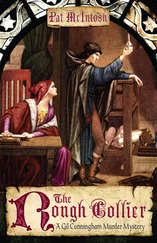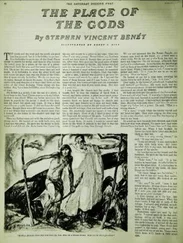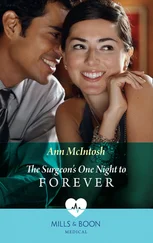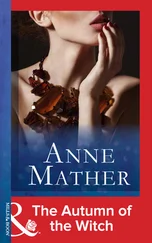“No.”
“It’s a famous carpet-weaving town. We’re on a business trip to buy some rare rugs. You can talk knowledgeably about that if you’re asked, can’t you?”
“You’re crazy. This is the middle of a war zone and you’re giving them some cocked-up story about buying carpets?”
“Let me be the judge of that.” Ward shut down any further conversation by walking to the exit. I followed with Lazarus stalking behind.
There was no sign of Shim or the pilots. We’d entered a hangar as I’d suspected and only Eris was waiting for us. She appeared wan and exhausted. Her usually perfect platinum hair was a mess; puffy dark circles ringed her eyes. Had Ward reamed her out for her mistakes? Or perhaps she had a conscience after all. Maybe it cost her something to do harm to other people.
A black Mercedes sedan was parked outside the hangar. But that wasn’t what brought me to a halt. In the mid-distance stood a gleaming contemporary building, international aircraft flanked like the spokes of a wheel around its exterior. Not an army vehicle in sight. Before Eris or Lazarus could lay a hand on me, I grabbed Ward’s shoulder and forcibly turned him around to face me. “This obviously isn’t Baghdad. Where are we?”
He laughed in a mocking tone. “Atatürk International Airport. Welcome to your homeland, Madison.”
Twenty-eight

“We’re supposed to be going to Baghdad, to that address I gave you.”
“You’re complaining about a visit to the land of your birth?”
Lazarus chuckled at Ward’s remark. I told him to eat it. “What’s going on, Ward?”
“Just a short detour,” he replied. “Enjoy it while it lasts.”
Customs went smoothly. I cooperated because of the memory of Laurel’s voice, stretched thin with fear. Nor did I doubt Eris was capable of deploying the poison. I had to find the right opportunity and some way to make sure Laurel was protected before I tried to escape. That meant waiting to make my move when they were distracted or I was alone with one of them.
According to the airport clock we arrived at 10 P.M. At night through the car’s windows I could see little more than quick slices of the city. I thought I glimpsed the dome and exotic spiked minarets of Istanbul’s magnificent Blue Mosque, but that may have been just my imagination.
A couple of weeks before my ninth birthday, Samuel had written to say that he’d be leaving his work site in Mosul to spend a few weeks in Turkey. I pleaded with him to let me join him. Evelyn warned me not to get my hopes up, but, as a surprise to us both, he said yes, I could come. She bought me a book filled with pictures of Turkey and I pored over it again and again until I swear I had all the words memorized. I still remember the image of the green pools of Hierapolis, white marble Roman columns submerged beneath the pond surfaces like watery ghosts from a dim past. Days before I was due to fly over, Samuel wired to say he’d had a change of plans. I felt as though he’d slammed a door in my face. It took me months to recover from the disappointment.
That experience had played a major role in my lack of interest in my birthplace. From then on, it meant little more to me than a line or so on my naturalized American citizenship papers. Added to that was the sour aftertaste of the story I’d been told about the relatives who’d abandoned me. So the burst of pride I felt at seeing Istanbul for the first time, even as a blurred cityscape through a car window, caught me by surprise. And now my first reunion with the country was marred by its brutal circumstances.
The Mercedes eventually pulled up in front of an exceptionally beautiful building of ivory limestone, its facade richly ornamented with sculpture and decorative flourishes.
“The Grand Hotel de Londres,” Ward announced. “We’re stopping here.”
One step into the hotel transported us back to the previous century—elaborate leaded-crystal chandeliers, Victorian wallpaper, golden art deco statuettes poised on either side of a grand staircase. Once a rich burgundy, the velvet upholstery of the furnishings had faded with time.
Ward gave the room a quick once-over when we entered the lounge, glanced at his watch, and barked at Eris, “I don’t see our contacts. I thought they were supposed to meet us here.”
“They’ll show. Must have been held up by the traffic or something,” she said.
“We’re paying them enough to be on time,” Ward snapped. “Let’s get a table then—I’m starving.”
He went over to the bar while we settled into chairs. I saw him talk to the bartender and hand over a sheaf of bills. The room maintained the Victorian theme, so much so that it could double for an English colonial movie set. Live parrots fluffing their brilliant chartreuse feathers swung in bamboo cages. Every now and then the birds would let out a squawk, but whatever they had to say, it wasn’t in English. I half expected to see Graham Greene’s Myatt from Stamboul Train perched on a bar stool, sampling a gin and tonic.
Ward’s mood had improved when he returned. The expansive personality of the jovial professor was back. I thought it a talent of his, this ability to flip so quickly out of the dark side where his natural personality lay. “Our contact phoned the hotel. He’ll be here soon. I was told it isn’t customary to eat in the bar but I managed to persuade the bartender. I ordered us some food and drinks.”
“We’re staying here tonight?”
“No. Just here for a while then we’re off. It’ll take five hours to reach our destination.”
“Afyon—that town you mentioned?”
“North of it.” The bartender interrupted with a tray of drinks and served Ward first instead of Eris. He almost bowed in deference, appreciative no doubt of the very large tip Ward must have passed his way. I played with the idea of getting a message to the New York police through him but doubted I’d manage to talk with him alone.
Ward decided to show off, still in full professor mode. “The hotel has one of the best views of the Golden Horn in the city. It’s off the beaten path now, which is why I like coming here. This place was built in 1892, soon after the Orient Express line came to Istanbul. The trains brought a new wave of invaders, English tourists in search of Near East mystique. Agatha Christie wrote Murder on the Orient Express at the Pera Palace Hotel just down the street, and in the 1920s Ernest Hemingway sat in this very bar.”
“It seems a bit genteel here for Hemingway. I remember reading that in China he drank wine from a jar with eight snakes in it.” I enjoyed the look of irritation on Ward’s face after I butted in.
Two men appeared in the entrance. Eris smiled, with a touch of relief I thought, and beckoned to them. I guessed one was somewhere in his thirties; the other, with a peppering of gray in his dark hair, close to fifty. They wore casual suits, no ties, and sunglasses, even though it was long past sunset. The younger guy had a gold watch with a heavy linked band. They looked as though they’d just stepped out of Godfather III .
Ward made a show of offering them drinks, which they declined. Eris didn’t bother with introductions, or at least it seemed that way because she launched into a short speech in what I gathered was Turkish. When she finished, the gray-haired man glanced at Ward and nodded.
“Ask how long ago it was when they saw him,” Ward said to Eris.
She translated, got an answer, and said, “Last night at the tomb. Mazare”—she indicated the older man—“confirmed he’s still in the area.”
Who were they talking about—Tomas? He’d told me the treasure originally came from Anatolia, and we knew there was a Phrygian connection, but I couldn’t believe they’d find anything in Turkey. Ashurbanipal’s plunder was supposed to have been removed to Assyria thousands of years ago. I couldn’t be certain, though, that Tomas had told me the truth.
Читать дальше













